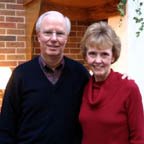Not long ago my wife, Jan, and I pulled into Kohl’s parking lot in Ft. Wayne, Indiana. We paused as a group of Asians walked in front of us. “Jan, look at those people. They look like they’re right off the boat.” They had mismatched clothing and the dazed look of newly arrived immigrants.
Upon entering the store Jan veered off to the women’s section and I started wondering through the men’s. And there they were, about twelve of them. I attempted to make eye contact with them one-by-one and initiate a smile. Finally one man locked on my eyes and responded with a smile.
I asked him, “Where are you from?”
“Burma.”
“Wow. I’ve never met anyone from Burma.”
“Are you Burmese?”
“No, I am Mon.”
“Hmong? I didn’t know the Hmong (pronounced Mong) were in Burma. I know they live in Lao, China, Viet Nam and Thailand. But I didn’t know they lived in Burma.”
“Mon!!”
“That’s what I’m saying, Mong.”
“No, you say Hmong. I’m Mon.”
Well, to my ears Hmong and Mon were sounding the same. I mean, it’s just one letter different, right?
“Okay,” I said, “How do you spell your name?”
“M ---- o ---- n”
I then disengaged from the conversation, went across the store and called the GBIM office on my mobile phone. I asked Ted Rondeau to go on the Joshua Project website (www.joshuaproject.net), click on Burma and then click on the Mon People. A couple of minutes later Ted uttered a “Wow” and commenced to tell me that there are 749,000 Mon living in Burma, they speak the Mon language, they are Buddhists and they are an unreached people group.
I approached the gentleman and shared with him my new-found information.
“How you know that so quickly,” he said.
“Oh, I have my ways.”
I then explained to him that I know a website that gives information about the people groups of the world.
I continued the conversation, “How many Mon live in Ft. Wayne?”
“One hundred families.”
I then explained that we must be having a translation problem. I shared the difference between the English word “people” (as in 100 people) and the word “families.” I counted out five people on my hand. My thumb is the father, my first finger is the mother and the remaining fingers are the three children. In other words, one family, but five people.
He then restated what we had shared from the very beginning in answering my question.
“One hundred Mon families (that’s 100!) live in Ft. Wayne!”
I was deeply moved! I was in awe! Standing in front of me was a Mon from Burma! A person from an unreached people group. Most likely this man had never heard the name of Jesus, let alone the concept of a creator God.
Lessons learned:
- God is bringing the people groups (biblical nations) to our communities.
- Many of these people groups are unreached. In other words, they have never heard the name of Jesus, let alone the plan of salvation.
- You and I can have a significant cross-cultural ministry right in our community.
- You and I can reach people who have never heard about Jesus right in our community.
Are you aware of the Joshua Project website? Be sure to check it out at www.joshuaproject.net.
“Oh, Lord. Please God, open our eyes to see the nations in our communities and open our mouths to speak to them and open our hearts to love them. In Jesus’ name, Amen.”

